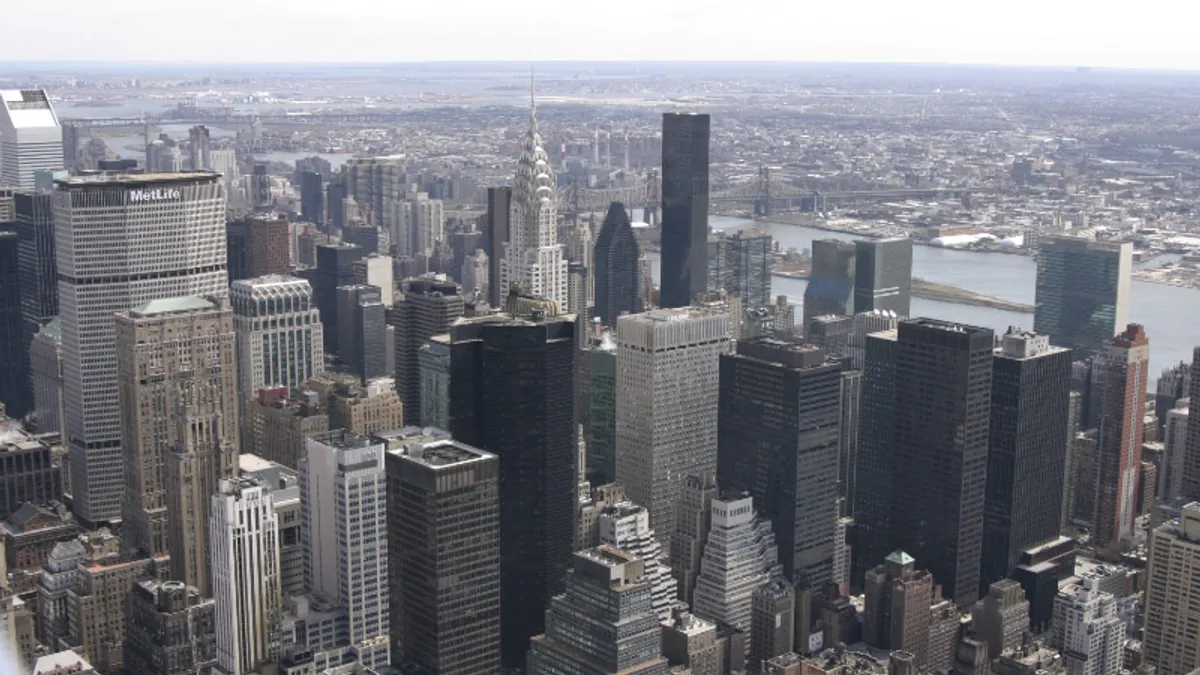Dive Brief:
- The New York Building Congress examined the stats from Dodge Data & Analytics and found that the total of 2015 New York City construction starts, new construction and renovations, was almost $41 billion, Real Estate Weekly reported. Last year's activity was 53% higher than 2014 starts and more than twice the starts in 2013 ($19.9 billion).
- Residential development was the force behind the flood of new projects, along with three significant, high-value office developments in Manhattan. New projects represented 76% of all starts, up from 66% in 2014, 58% in 2013 and 48% in 2012.
- Sector by sector for 2015, residential construction starts reached $19.5 billion, up 62% from 2014; nonresidential starts were $18 billion, up 65% from last year and public works starts, which include infrastructure projects like bridges, roads and sewer, were $3.4 billion, down almost 11% from 2014.
Dive Insight:
Although the 2015 growth in New York City construction was impressive, NYBC President Richard Anderson said in a statement that government spending on infrastructure was not keeping up with all of the growth, The Real Deal reported. He also advocated caution to those expecting these boom levels of activity going forward.
"Perhaps never before in New York City has so much new housing been in the pipeline at one time," Anderson said in a statement. "The present question is how long we can sustain this sort of pace, especially in the absence of the 421a subsidy program and with increasing reports of a softening market."
The 421a subsidy is a state tax break for developers who build new residential buildings. That program ended last year, perhaps for good, when the Real Estate Board of New York and the Building and Construction Trades Council of Greater New York could not agree on prevailing wage provisions that are part of the credit.
As developers got wind of the news that the credit was in jeopardy, the number of residential building permit applications hit 17,804 in June and 42,088 for apartments and houses during the first six months of the year, according to the U.S. Census Bureau. However, January permit applications, after the credit expired, plunged to 453, 94% less than the 7,781 issued in December before the 421-a tax break expired.











